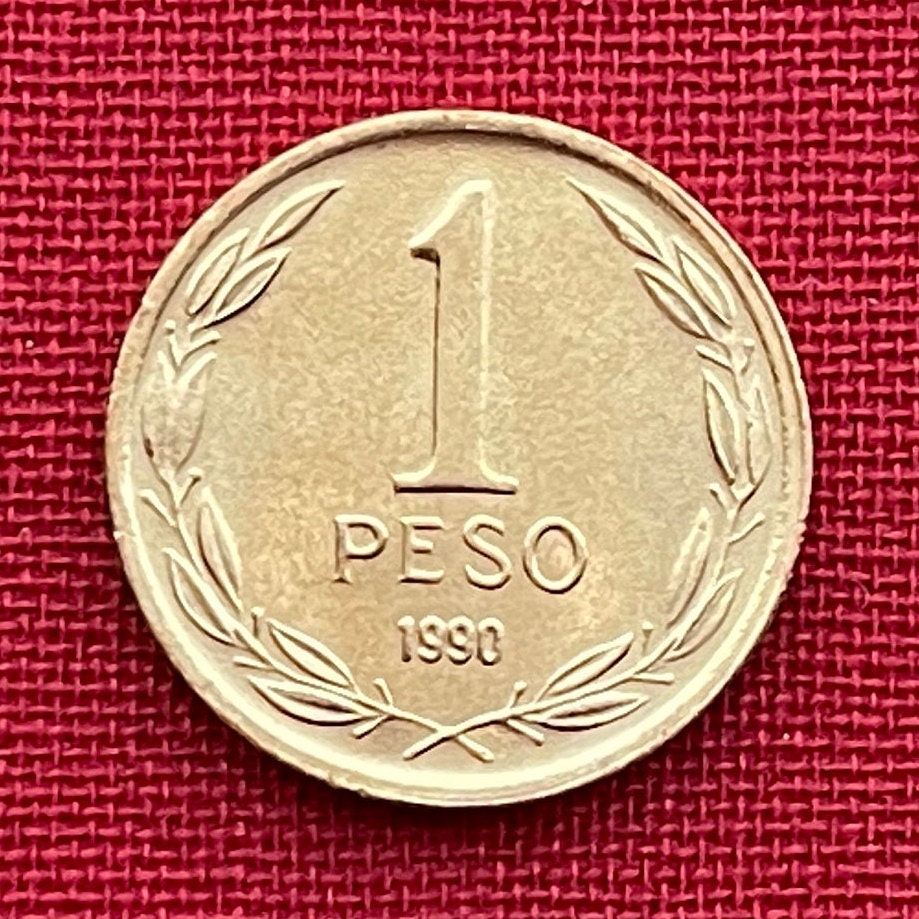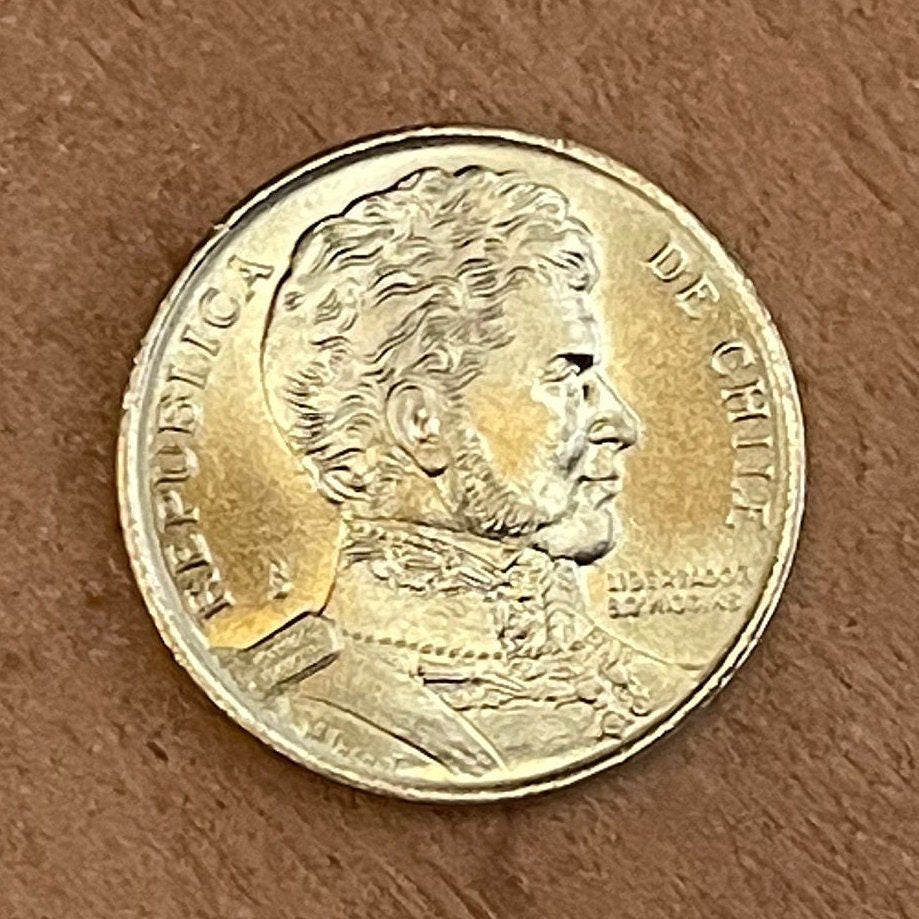elemintalshop
Libertador Bernardo O'Higgins 1 Peso Chile Authentic Coin Money for Jewelry (Revolutionary Leader) (Liberator) (Supreme Director)
Libertador Bernardo O'Higgins 1 Peso Chile Authentic Coin Money for Jewelry (Revolutionary Leader) (Liberator) (Supreme Director)
Couldn't load pickup availability
Liberator Bernardo O'Higgins 1 Peso Chile Authentic Coin Money for Jewelry and Craft Making (Revolutionary Leader) (Supreme Director) (Irishman)
Obverse: Portrait of Bernardo O'Higgins (1778-1842), one of the founders of Chile, one of the greatest military figures when fighting for Chile's independence, and the first Chilean head of state, facing right
Lettering: REPUBLICA DE CHILE
So
LIBERTADOR
B. O'HIGGINS
R.THENOT
Translation: Republic of Chile
So
Liberator
B. O´Higgins
Reverse: Value within Laurel Wreath
Lettering: 1 PESO
Features
Issuer Chile
Period Republic (1818-date)
Type Standard circulation coin
Years 1981-1992
Value 1 Peso (1 CLP)
Currency New peso (1975-date)
Composition Aluminium-bronze
Weight 2 g
Diameter 17 mm
Thickness 1.4 mm
Shape Round
Orientation Coin alignment ↑↓
Demonetized 1 November 2017
Number N# 5426
References KM# 216
Wikipedia:
Bernardo O'Higgins Riquelme, August 20, 1778 – October 24, 1842) was a Chilean independence leader who freed Chile from Spanish rule in the Chilean War of Independence. He was a wealthy landowner of Spanish and Irish ancestry. Although he was the second Supreme Director of Chile (1817–1823), he is considered one of Chile's founding fathers, as he was the first holder of this title to head a fully independent Chilean state.
He was Captain General of the Chilean Army, Brigadier of the United Provinces of the Río de la Plata, General Officer of Gran Colombia and Grand Marshal of Peru.
Bernardo O'Higgins, a member of the O'Higgins family, was born in the Chilean city of Chillán in 1778, the illegitimate son of Ambrosio O'Higgins, 1st Marquis of Osorno, a Spanish officer born in County Sligo, Ireland, who became governor of Chile and later viceroy of Peru. His mother was Isabel Riquelme, a prominent local; the daughter of Don Simón Riquelme y Goycolea, a member of the Chillán Cabildo, or town council.
O'Higgins spent his early years with his mother's family in central-southern Chile and was never openly acknowledged by his father, and later he lived with the Albano family, who were his father's commercial partners, in Talca. At age 15, O'Higgins was sent to Lima by his father. He had a distant relationship with Ambrosio, who supported him financially and was concerned with his education, but the two never met in person. At the time of his son's birth, Ambrosio was only a junior military officer. Two years later, Isabel married Don Félix Rodríguez, a friend of her father. O'Higgins used his mother's surname until the death of his father in 1801.
Bernardo's father continued his professional rise and became Viceroy of Peru; at seventeen Bernardo O'Higgins was sent to London to complete his studies. There, studying history and the arts, O'Higgins became acquainted with American ideas of independence and developed a sense of nationalist pride.[2] He met Francisco de Miranda, a Venezuelan idealist and believer in independence, and joined a Masonic Lodge established by Miranda, dedicated to achieving the independence of Latin America.
In 1798 O'Higgins went to Spain from Great Britain, his return to the Americas delayed by the French Revolutionary Wars. His father died in 1801, leaving O'Higgins a large piece of land, the Hacienda Las Canteras, near the Chilean city of Los Ángeles. O'Higgins returned to Chile in 1802, adopted his biological father's surname, and began life as a gentleman farmer. In 1806, he was appointed to the cabildo as the representative of Laja. In 1808 Napoleon took control of Spain, triggering a sequence of events in South America. In Chile, the commercial and political elite decided to form an autonomous government to rule in the name of the imprisoned king Ferdinand VII; this was to be one of the first in a number of steps toward national independence, in which O'Higgins would play a leading role.
Share










A nice coin to buy.









